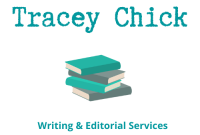Looking to work with an editor? Get some handy tips to make the process a smooth one.
Share this post in your favourite places!

Before Submission
1. Think carefully about the type of editing your work needs
In my post about the different types of editing I outline the stages of editing and the purposes of each and detail the route a writer should take to ensure the book they produce is ready for its reader audience.
2. Consider an editor who specialises in a particular genre
For example, if you write thrillers or crime, find an editor who focuses on these types of manuscript. They will have a good understanding of the conventions of these types of work and should be able to offer genre appropriate advice.
3. Plan ahead
If you know you are almost ready to submit your book to an editor, find out their availability. Editors schedule their work weeks in advance and if you need their help urgently, you can expect to pay a premium for this.
4. Try a sample edit first.
Many editors offer a short edit (usually a 1000 words) for a fixed cost. They treat the sample as they would a full work and provide detailed feedback on the editing points identified. This is different to a free assessment which usually gives comments on the sample but doesn’t provide in-depth feedback or suggested changes on the text itself.
Having a sample edit will allow you to see if the editor is a good fit and should give you a better idea of how much editing a full work will cost.
5. Make sure you understand the charges
When asking for a quote on your work, make sure you get much information as possible. Freelance editors choose different ways of pricing their services. Some price per word, per 1000 words, some per hour and some per page.
6. Prepare, prepare, prepare
Make sure your manuscript is as prepared as it can be before submitting to your editor. It should be presented in a 14 point font such as Times New Roman and should have 1.25 or 1.5 line spacing . Good preparation will help keep costs down as the editor won’t have to spend time putting these things right before starting.
7. Tell your editor your Achilles heel
Whether you misspell particular words or struggle with certain types of punctuation, let your editor know. A good editor won’t judge as after all, correction is their work. Every writer, no matter how far along in their career has something that trips them up.

Photo by Etienne Girardet on Unsplash
When your work is returned
8. Take a deep breath
When you receive your edited manuscript, it can feel overwhelming at first. Read the comments through then set aside for a few days to take them in. It’s human nature to focus on the mistakes rather than on what we have done well. And remember, it is you the author who has the final say on what changes are incorporated.
9. Ask questions
After you have read through everything, don’t be afraid to ask questions if there are edits you don’t understand. A good editor is there to support you and will be expecting you to have questions. It’s part of the service.
10. Take your time
When working through your edits, take your time. It is well worth that final time investment. Think of it as putting the final coat of polish on it to make it shine as brightly as it deserves to after all the hard work you’ve already put into it.
11. Say thank-you
If you’ve loved working with your editor, consider giving them a testimonial. There is no greater way of advertising than word of mouth and editors are always grateful for a few words from a satisfied customer they can shout about on their marketing platforms.

Tracey Chick is a line and copyeditor specialising in historical fiction and narrative nonfiction.
She is a member of the Chartered Institute of Editing and Proofreading.
Visit her business website at Tracey Chick , connect on Twitter at @WriterTjc, and LinkedIn and Facebook
Please share in your favourite places!
